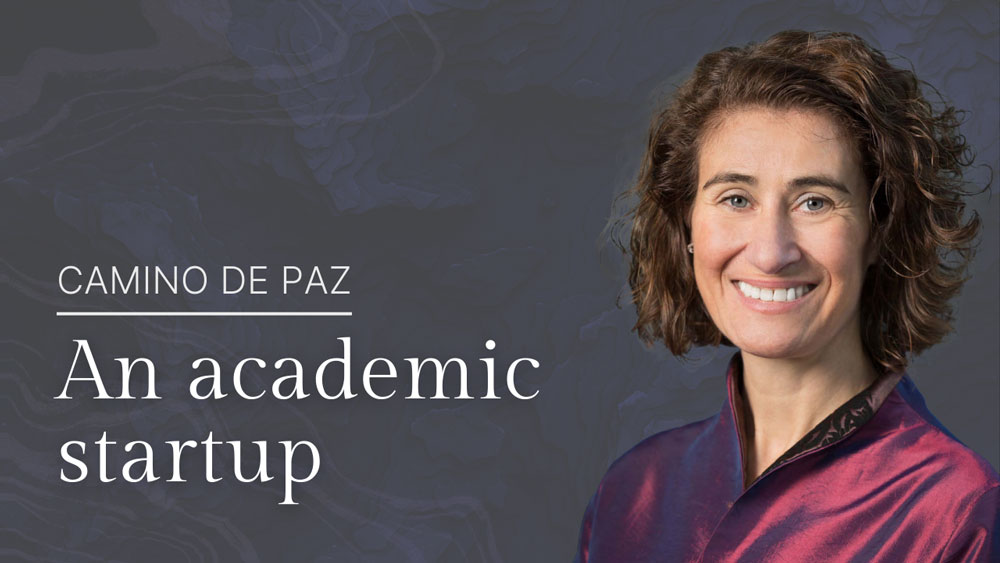David Lovejoy
3
min read
Academic Startup
Camino de Paz
Assistant Dean of Global Network Programs | Yale School of Management
Key Highlights
With a startup-like approach, Camino successfully aligned 32 global institutions towards a common goal by identifying each university's unique values and strengths.
The Global Network for Advanced Management (GNAM) operates independently and has strategically aimed for global representation, inviting top schools from various regions while maintaining an excellent standard.
Reflecting on the first decade, GNAM's growth story is a testament to the transformative power of global academic collaboration.
Introduction
When it was established in 2012, the Global Network for Advanced Management (GNAM) was an ambitious undertaking. Formed as a consortium of 21 distinguished global institutions, including Yale University, GNAM sought to connect and foster academic collaboration among top institutions of higher learning worldwide. A decade on, its reach and impact have expanded substantially. Today, GNAM boasts 32 schools, including my alma mater, the University of British Columbia (UBC). A visionary leader, joining GNAM in 2014 as the Director of Global Initiatives, steered a significant part of this evolution.
Embracing a Strategic Role
Camino de Paz started her journey in higher education at IE Business School, where she found stability but began to feel stagnant after several years. She yearned for growth and needed to transition from merely managing MBA programs to a more strategic role. The state of Spain's economy and a personal mid-life crisis also factored into her decision.
She then joined Yale, intrigued by the unique opportunity it presented. Yale, offering the chance to lead a global initiative, allowed her to escape the feeling of being 'trapped' she had experienced in her previous roles. With its vast reach, her small team operated like an academic startup, allowing her to exercise her influence and build something from scratch.
Overcoming Challenges
Camino faced the daunting task of aligning universities toward a common goal. Anyone who has worked in higher education knows this is difficult to do in a single organization. Multiplied by 32 academic entities scattered across the planet, each steeped in its own traditions and culture, one can begin to imagine the magnitude of this undertaking. However, by identifying what each institution valued and prided itself on, she fostered synergy among them.
Camino's leadership style evolved as she adapted to the different communication styles and departmental structures across the universities within GNAM. She found her voice and learned to reach her audience effectively through this.
Looking to the Future
Although Yale’s prestige played a pivotal part in getting buy-in from other schools initially, GNAM runs independently, and its growth strategy has aimed for truly global representation by inviting the best schools from various regions. Maintaining excellence remained paramount while scaling up, leading to a robust evaluation process for potential members.
As GNAM reaches optimal size, invitations to potential member schools are extended based on a majority vote, underscoring its collaborative ethos.
Now celebrating its first decade, it looks ahead to a future of continued expansion, deepened ties, and increased collaboration in research, teaching, and knowledge exchange. With Camino and her collaborators at the helm, GNAM's evolution continues, shaping it into a global education powerhouse.
Conclusion
Reflecting on the past decade, GNAM's journey presents an inspiring tale of innovative leadership, strategic collaboration, and adaptive growth. Camino de Paz Espiago’s tenure as Director of Global Initiatives and now Assistant Dean of Global Network Programs embodies this narrative, demonstrating a remarkable ability to unite diverse institutions and cultures towards a shared mission. With its steadily expanding network, GNAM stands as a testament to the transformative power of global academic collaboration. As it steps into its second decade, GNAM, with guidance from forward-thinking leaders like Camino, remains poised to extend its reach and impact further, reinforcing its position as a global leader in higher education.



